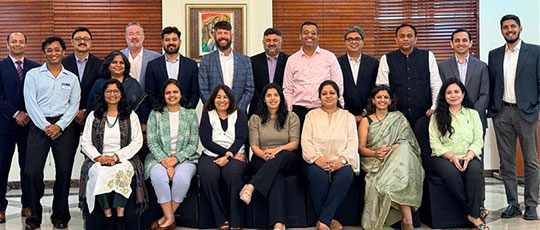- Let’s talk about — and act toward — equity. Recent exchanges underscore the need for a discussion on the importance of equity-focused efforts by HR / total rewards professionals. This dialogue gains depth when we move beyond acronyms to focus on impact.
- Equity’s vital place within HR and TR. Results-driven HR and total rewards leaders champion equity every day, fueled by a deep commitment to create meaningful, positive change in the workplace.
- Research and other evidence support equity’s benefits. Commitment is critical because equity enhances engagement and performance, benefiting both the organization and its people.
There recently has been significant discussion — some of it heated — in web posts, social media and chatrooms about the prioritization of “equity” within the “diversity, equity and inclusion” (DEI) framework. These exchanges have sparked some lively, insightful and inspiring comments from the HR community, solution providers and media outlets.
These exchanges underscore the need for a discussion on the importance of equity-focused efforts by HR professionals. This dialogue gains depth when we move beyond acronyms to focus on impact. Results-driven HR and total rewards (TR) leaders champion equity every day, fueled by a deep commitment to create meaningful, positive change in the workplace. This commitment is critical because equity enhances engagement and performance, benefiting both the organization and its people. Solid evidence — including WorldatWork research — supports this, guiding HR and TR professionals in advancing equity within the workplace.
Organizations make substantial investments in their TR programs, which encompass compensation, benefits, well-being, career development and recognition (see Figure below). These programs enable organizations to attract and retain excellent people, and to help align their goals with those of the business. This approach empowers people to reach their full career and earning potential, while delivering significant value to the organization. However, without a foundation of equity, these TR programs can fall short of their intended impact and undermine overall organizational effectiveness.

Equity Strategies Can’t Be Unbundled
Determining whether diversity, equity or inclusion should lead the path to organizational success mirrors the age-old “chicken or the egg” dilemma. It’s a circular debate that oversimplifies the complexity of achieving workplace equity — a nuanced challenge that demands a comprehensive strategy.
The reality is that equity, equality, diversity and inclusion all work synergistically in important ways to create environments where workers and organizations both excel.
- Equity and equality. Equity ensures fairness and impartiality by addressing individual needs and historical disadvantages; equality aims for uniform treatment, giving everyone the same thing regardless of whether they need it.
- Equity and diversity. Equity recognizes and values diverse identities and experiences, strengthening an environment that supports and nurtures a multifaceted workforce.
- Equity and inclusion. Inclusion amplifies equity by actively engaging and valuing diverse groups in all aspects of organizational life.
While organizations may prioritize these elements differently based on their goals, it’s clear that these elements — individually and collectively — are essential in achieving a balanced workplace.
Equity should be the goal. Without it, diversity risks becoming a mere numbers game and inclusion efforts may fall short of genuine engagement.
Some see equity as a prerequisite to inclusion’s broader objective. In my view, equity should be the goal. Without it, diversity risks becoming a mere numbers game and inclusion efforts may fall short of genuine engagement.
Why Equity Is Not Going Anywhere
Equity and fairness are cornerstones of effective business operation and strategy as well as healthy workforce experiences. Employers that foster environments perceived as fair by their workers can generate significant rewards and create spaces where people thrive; organizations that fail to do so are likely to experience negative impacts — to both the business and the people who work there.
A 2020 SHRM study painted a bleak picture of the cost of an unfair workplace. Among employees who reported being treated unfairly due to their race or ethnicity, 48% called in sick or missed work due to anxiety, frustration and stress. This widespread absenteeism cost U.S. employers a staggering $54.1 billion in 2019 alone.
In stark contrast, a 2021 Gartner study revealed employee performance is 26% higher in environments marked by high fairness. Shockingly, only 18% of employees work in such equitable conditions. These findings underscore the urgent need for a relentless focus on equity and highlight the formidable competitive advantage for employers that commit to these efforts.
It’s crucial to recognize the universal human expectation of equity. It’s a fundamental value for workers globally, making it central to total rewards strategies.
Beyond organizational benefits, it’s crucial to recognize the universal human expectation of equity. It’s a fundamental value for workers globally, making it central to TR strategies. Organizations risk devaluing and demotivating their people if they don’t practice fairness in compensation, opportunities for advancement and daily work interactions.
Equity Is an Ever-Evolving Pursuit
The journey toward equitable work environments is ever evolving. For our organization, it started almost 70 years ago: Since its founding as the American Compensation Association, WorldatWork pioneered the emphasis on internal job equity and external competitiveness in scientific compensation practice — a decade before the passage of the Civil Rights Act of 1964.
Much has changed in that time. HR professionals have moved beyond the presumption that equity can be achieved solely through uniformity in policy, structure and decisions. TR practices have advanced along with perspectives and technology, enabling precision in addressing complex societal and systemic issues with preventive and remediation solutions.
Equity is not a checkbox to tick; it’s a daily mission, and one worth our full dedication.
One thing that remains unchanged is the fundamental purpose of rewards: to motivate and engage the workforce. Motivation flourishes when workers perceive that their efforts are valued, their performance leads to fair rewards and these rewards hold personal significance. This underscores why equitable practices are essential to effective rewards — they cultivate trust, which in turn drives motivation.
Now Is the Time to Double Down
While others reconsider equity’s role, forward-thinking HR and TR professionals intensify efforts across all elements — equity, equality, diversity and inclusion. They focus on overcoming pay inequity, addressing root causes of disparity, strategizing remediation, and personalizing rewards for equal opportunity and value. No playbook exists, but the following actions can help those in the profession make significant progress:
- Navigate. Continuously update your knowledge of equity laws and apply them in complex organizational jurisdictions.
- Disrupt. Critically evaluate rewards to ensure fairness, proactively address and amend inequities, and explore innovative approaches to tackle persistent challenges.
- Collaborate. Work across the organization and HR profession to effect change, break down systemic barriers to equity and enhance collective impact with like-minded peers. Join the WorldatWork Engage community for support and resources if you are lacking a tribe.
- Communicate. Facilitate open dialogue about pay practices and career progression opportunities to build trust and foster an equitable workplace. Listen to and understand both employee needs and barriers to equity.
- Audit. Conduct thorough and regular (at least annual) pay equity audits to identify and correct disparities based on gender, race or other factors. Remediate issues swiftly to prevent further perpetuation of inequity.
- Advance. Establish clear metrics to track progress toward equity, hold leadership and stakeholders accountable, and keep them informed of progress.
- Champion. Lead by example and foster an inclusive environment where diverse viewpoints are appreciated and valued. Support and leverage employee resource groups as critical inputs to rewards strategy planning.
Address Complexity Through Community and Commitment
Equity work is complex and requires continuous commitment beyond a prescribed approach or set cycle. TR professionals play a crucial role in fostering equitable workplaces worldwide by actively focusing on this vital aspect of the workforce experience. Equity is not a checkbox to tick; it’s a daily mission, and one worth our full dedication.
Editor’s Note: Additional Content
For more information and resources related to this article, see the pages below, which offer quick access to all WorldatWork content on these topics:








